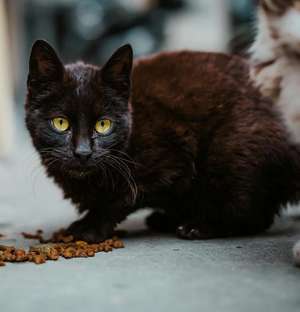
Tailoring Nutrition for the Golden Years: Senior Pet Care Essentials
As pets age, their nutritional needs evolve, necessitating adjustments to their diet to support their health and quality of life in their golden years. Understanding and catering to these needs is paramount for the well-being of senior pets. This article sheds light on senior pet nutrition, optimal feeding practices for older dogs, adjustments in the diet for aging cats, the importance of supplements for senior pets, and general advice on caring for aging pets.
The Shift in Nutritional Needs for Senior Pets
Aging pets experience changes in metabolism, activity levels, and health status, which can affect their dietary requirements. Senior pets may require fewer calories to prevent weight gain due to decreased activity but still need a nutrient-rich diet to maintain muscle mass and overall health.
Feeding Older Dogs: What to Consider
For senior dogs, a diet lower in calories but rich in high-quality protein to support lean muscle is beneficial. Consider diets formulated specifically for senior dogs that include:
- Enhanced Antioxidant Support: To combat aging and boost the immune system.
- Joint Health Supplements: Ingredients like glucosamine and chondroitin support joint health and mobility.
- Digestive Aids: Older dogs may benefit from diets with easily digestible ingredients and added fiber to support gastrointestinal health.
Adjusting the Diet for Aging Cats
Cats' dietary needs change subtly with age. Key dietary adjustments include:
- Increased Moisture Content: Older cats may be prone to dehydration, so incorporating wet food can help maintain hydration.
- Protein Quality: High-quality, easily digestible protein is essential to support kidney function and muscle mass.
- Caloric Adjustment: Monitor caloric intake to prevent obesity, adjusting portions as needed to maintain an ideal body weight.
Supplements for Senior Pets: Boosting Health
Supplementation can play a vital role in managing age-related issues:
- Omega-3 Fatty Acids: Beneficial for joint health and cognitive function.
- Probiotics: Support digestive health and nutrient absorption.
- Antioxidants: Vitamins E and C, for example, can help reduce oxidative stress and support immune function.
Before introducing any supplements, consult with a veterinarian to ensure they’re appropriate for your pet’s specific health profile.
Caring for Aging Pets: Holistic Wellness
Nutrition is just one aspect of caring for senior pets. Regular veterinary check-ups, maintaining a manageable exercise routine, and adapting the living environment to accommodate age-related changes, such as orthopedic beds for comfort, can significantly contribute to their quality of life.
Conclusion
The nutritional needs of senior pets are distinct and require careful consideration to optimize their health and comfort in their later years. By providing a balanced diet tailored to these needs, along with appropriate supplements and overall care, pet owners can significantly impact the well-being of their aging companions. Embracing this stage with the right nutritional support can help ensure that our pets continue to thrive throughout their golden years.





